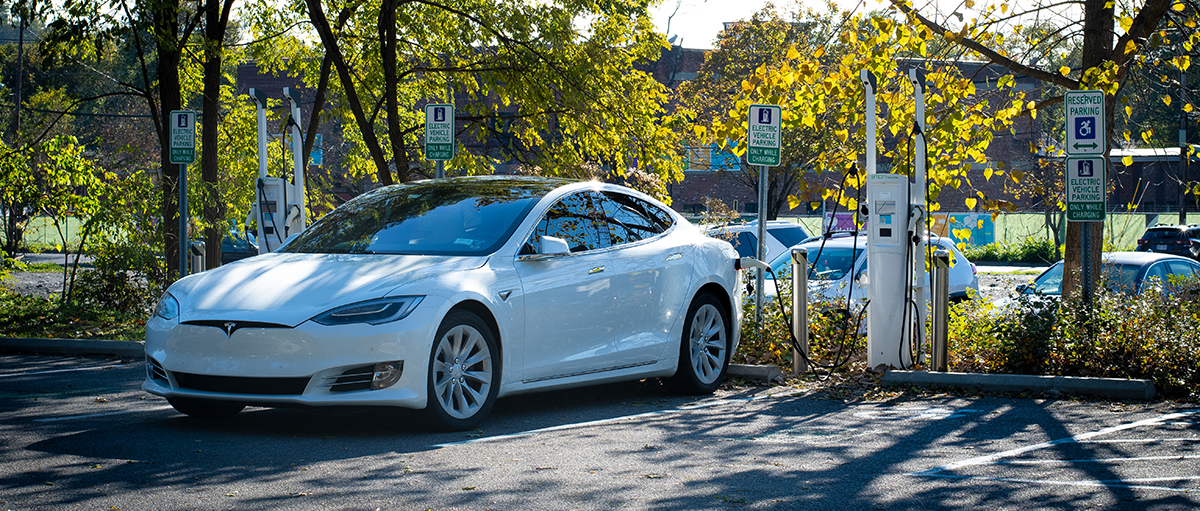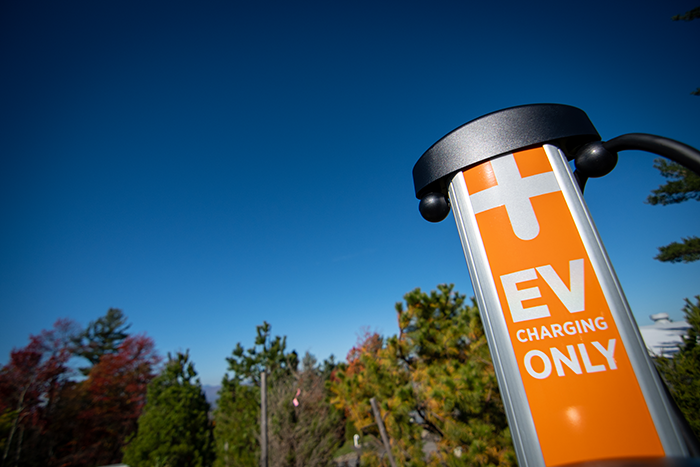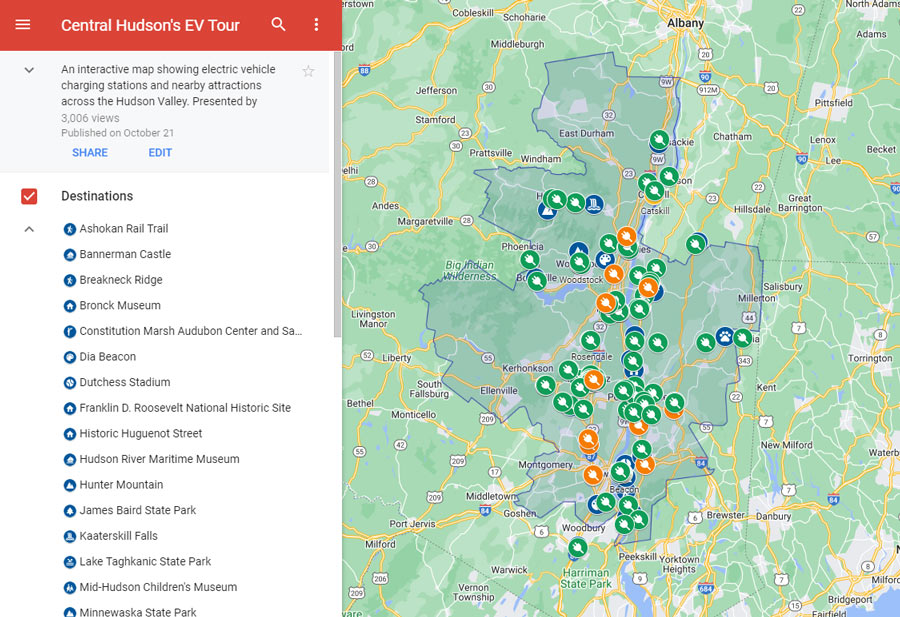
Electric vs. gas cars: Which offers the best fuel economy?
Is an EV cheaper to drive from point a to point b than a gasoline-powered car?
Let's compare a typical example of both type of vehicle using average prices, updated as of Fall 2024.
CAR A
- Gasoline car: 24.4mpg (average for U.S. cars)
- Average local gas price: $3.16 (Recent NYS average price)
CAR B
- EV: 2.89 miles per kWh (average for U.S. EV cars)
- Average local retail electricity price: 25.2 cents per kWh (most recent average for NYS)
So… how much would it cost to go 300 miles?
- In Car A, it would cost $38.55.
- In Car B, it would cost $26.16.
What about 15,000 miles, a little more than the typical American drives each year?
- In Car A, it would cost $1,942.62
- In Car B, it would cost $1,307.96
So in this case, comparing the average EV to the average passenger vehicle on the road right now, you’d save over $634.66 annually (or 33 percent) using electrons rather than gasoline.
Compare for yourself
To compare specific gas-powered and electric vehicles, check out this online calculator or take a look at this Google Sheet we created (you’ll need to select “File > Make a copy” to edit it).
We included links to all the needed source info in the Google Sheet. For the online calculator, you’ll need to input the local gasoline price, miles per gallon, average NYS electricity price, and kWh per mile. We used the most recent average numbers available. You can find an updated list of gasoline prices on the AAA website, miles per gallon for various cars from the Department of Energy, and electricity prices on this state website. Here are some example miles per kWh for different EVs:
|
Model |
Miles per kWh |
|
Tesla Model 3 (2021) |
4 |
|
Hyundai Ioniq Electric (2021) |
4 |
|
Hyundai Kona Electric (2021) |
3.7 |
|
Tesla Model S (2021) |
3.45 |
|
Nissan Leaf (2021) |
3.13 |
|
Ford Mustang Mach-E (2021) |
2.94 |
|
Porsche Taycan (2021) |
2.44 |
|
Audi E-Tron (2021) |
2.33 |
Promoting wider EV adoption
While there are more EVs on the road than ever before, the main factor cited by those who aren’t ready to make the switch yet is range anxiety; the fear of running out of juice and being stranded on the side of the road because one is unable to find a charging station.
Most of the time, this wouldn’t be an issue. A recent study found that only about 2 percent of car trips are greater than 50 miles, while the battery capacity of EVs spans from 150-300 miles. But until charging stations are as plentiful as gas stations, this will continue to be a concern.
Central Hudson is helping to increase the number of charging stations through our EV Make Ready program, which provides incentives that can cover up to 100 percent of the costs of necessary charging station infrastructure, which can be installed at businesses and municipal parking areas. Many businesses benefit from installing EV chargers because they attract customers with above average disposable income who tend to stay at a particular location for significantly longer
To learn more about our program, visit the Central Hudson Make Ready page.
Home charging incentives for EV drivers
Central Hudson's EV ChargeSmart Program aims to meet participants' charging needs at the lowest cost possible while improving grid resilience and reducing greenhouse gas emissions. The Program offers year-round incentives for charging your vehicle during off-peak hours (after 7 p.m. and prior to 2 p.m.). Learn more about current incentives and eligibility requirements on our EV ChargeSmart page.
Central Hudson's EV Tour
To demonstrate the increasing practicality of long-distance EV trips, we created the following interactive map showing area destinations of interest and nearby EV chargers. Check it out.




